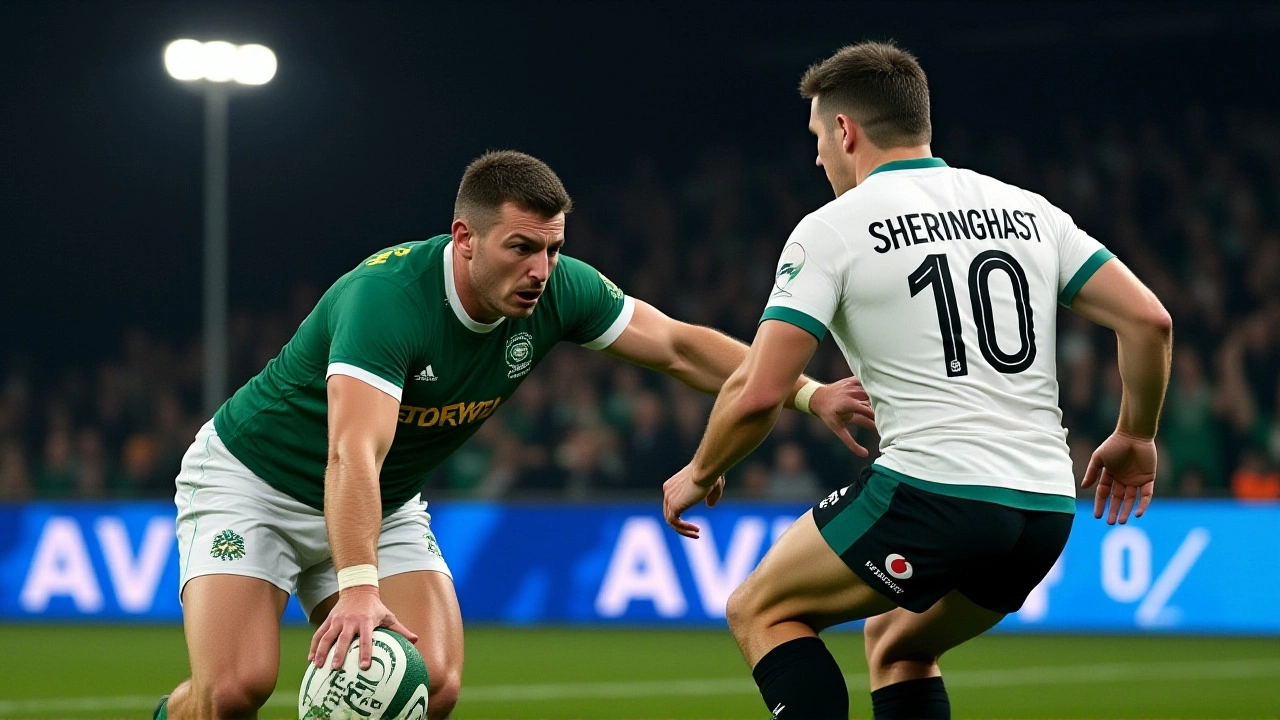When South Africa crossed the line for the final time at the Aviva Stadium on Saturday, November 22, 2025, the roar that followed wasn’t just for a try—it was for a 13-year drought finally broken. The Springboks edged out Ireland 27-20 in a bruising, rain-slicked battle that rewrote history and sent shockwaves through the Autumn Nations Series. It was their first win on Irish soil since 2012, a stretch that included four straight losses and a reputation as perennial underdogs in Dublin. The final whistle didn’t just end a match; it ended a psychological barrier.
The Weight of History
For Ireland, this was supposed to be a statement game. Coming off a record 46-19 thrashing of Australia—where Mack Hansen bagged a hat-trick on his debut—they’d regained key Lions like Andrew Porter, Bundee Aki, and Josh van der Flier. The team, ranked fourth in the world, was desperate to shake off whispers of decline. Head coach Andy Farrell called South Africa "the best in the world," even though his side had won four of the last five meetings. The irony wasn’t lost on fans: Ireland had beaten the Springboks in Dublin in 2017 and 2022, yet the narrative clung to their inability to win in South Africa. Now, the tables had turned.For South Africa, the pressure was different. Rassie Erasmus, the mastermind behind their 2019 and 2023 World Cup triumphs, had never won at the Aviva. He’d made 11 changes from the side that beat France, a gamble that looked reckless until it wasn’t. With Lood de Jager suspended and Kurt-Lee Arendse sidelined by concussion, he turned to young legs and untested combinations. Canan Moodie on the wing, Ruan Nortje in the second row—they weren’t names on the lips of pundits. But by the 70th minute, they were legends in Dublin.
How the Match Unfolded
It was a game of inches and intensity. Ireland struck first through Sam Prendergast’s penalty, but South Africa responded with a try from Sacha Feinberg-Mngomezulu, capitalizing on a turnover near the 22. The Springboks’ defense, often criticized for being too physical, was disciplined—no penalties conceded in the first half, no gaps in the line. Meanwhile, Ireland’s attack, usually so fluid, looked disjointed. Andrew Porter’s yellow card in the 33rd minute for a tip tackle on Siya Kolisi was a turning point. Suddenly, Ireland were down to 14 against a side that thrives on chaos."James Low was fantastic in the opening 20 minutes," one commentator noted, referring to the Springbok scrum-half who orchestrated play with surgical precision. Canan Moodie, the 22-year-old winger, repeatedly targeted Mack Hansen’s side of the field, forcing errors with his timing and aggression. "He hit Hansen’s pocket in the skies," said the broadcast, describing a moment where Moodie outjumped the full-back for a high ball that led to a crucial turnover.
South Africa’s tries came from unexpected sources: Feinberg-Mngomezulu, a rookie fly-half who hadn’t started a Test since June; Ethan Hooker, a utility forward who’d been playing club rugby in Cape Town six months ago; and Grant Williams, who finished off a sweeping move in the 68th minute. Prendergast kept Ireland alive with three penalties, but the final nail came when replacement prop RG Snyman—on for his 50th cap—powered over from a five-meter scrum. The conversion sealed it: 27-20.

Why This Matters Beyond the Scoreline
This wasn’t just about pride. For South Africa, it was a statement that their rebuild—after a turbulent 2024 season—was complete. They’d won six straight Tests, a run that included victories over France and Italy despite playing most of those matches with 14 men. Their depth, once a weakness, is now their greatest strength. Erasmus didn’t just manage the game—he outmaneuvered Farrell in the trenches.For Ireland, the loss exposes a deeper issue: reliance on individual brilliance rather than system cohesion. Hansen’s hat-trick against Australia looked like a breakout. Against South Africa, he was neutralized. The backline looked disjointed. The lineout, once a fortress, failed twice in the final quarter. And while Farrell praised his team’s grit, he didn’t hide the disappointment. "We didn’t execute when it counted," he said post-match. "They made us pay for the little things."
It also raises questions about the future of the Autumn Nations Series. With New Zealand and Australia fading, and South Africa rising, the competition’s balance is shifting. The Springboks now sit at No. 1 in the world, with no sign of slowing. Ireland, meanwhile, must ask: Are they still a top-four team, or are they becoming a top-six side that can’t close the gap?

What’s Next?
South Africa heads into the 2026 Six Nations with momentum—and a new belief. They’ll be favorites in every away game. Ireland, on the other hand, enters the new year with a rebuild on the horizon. Porter and van der Flier are aging; Aki’s injury history is a concern. Farrell will need to integrate younger players like fly-half Ciarán Frawley and lock James Lowe faster than expected.And what about that 2012 win? The last time South Africa won in Dublin, Ruan Pienaar—the Ulster legend—scored the only try. This time, it was a new generation, unburdened by past failures, who did it. History doesn’t repeat. But it does echo.
Frequently Asked Questions
How did South Africa win despite making 11 changes to the team?
South Africa’s depth, honed through their World Cup cycles, allowed coach Rassie Erasmus to rotate heavily without losing intensity. Young players like Sacha Feinberg-Mngomezulu and Canan Moodie stepped up, while veterans like RG Snyman provided leadership off the bench. The team’s defensive structure remained intact, and their scrum-half James Low controlled the tempo, turning youth into tactical advantage.
Why is this win significant for South Africa’s rugby legacy?
This was South Africa’s first victory at the Aviva Stadium since 2012, ending a 13-year winless streak in Ireland. It also marked their sixth consecutive Test win, reinforcing their status as world champions despite a turbulent 2024. Winning in Dublin—where they’ve historically struggled—proves their ability to adapt and dominate under pressure, not just in their own backyard.
What does this loss mean for Ireland’s World Cup chances in 2027?
Ireland’s defeat exposes a growing gap in execution under pressure. While they’ve been dominant against Tier 2 teams, losing to South Africa by seven points—after leading at halftime—shows they still lack the composure to close out elite opponents. If they can’t solve their lineout and breakdown issues by 2027, they risk being eliminated in the quarterfinals again, despite their high ranking.
Who were the standout performers for South Africa?
Sacha Feinberg-Mngomezulu, the 22-year-old fly-half, was sensational with his kicking and game management. Canan Moodie’s wing play disrupted Mack Hansen’s rhythm, and RG Snyman’s late try sealed the win. But the quiet hero was scrum-half James Low, who distributed with calm precision and controlled the tempo, making 92% of his passes accurate under wet conditions.
How did weather impact the match?
The wet, chilly conditions in Dublin favored South Africa’s physical, low-tempo style. Ireland’s attacking flair—usually reliant on quick ball and space—was stifled. Handling errors increased, and kicks became more strategic than expansive. South Africa’s forwards, heavier and more experienced in mud-heavy conditions, dominated the scrum and rucks, giving them the platform to grind out points.
Where can fans watch highlights of the match?
Full match replays are available on SuperSport in South Africa, RTE Player for Irish viewers, and TNT Sports in the UK. International fans can access highlights via Discovery+ and Stan Sport. The try by Sacha Feinberg-Mngomezulu and RG Snyman’s final score are among the most-watched clips on World Rugby’s official YouTube channel.

Write a comment